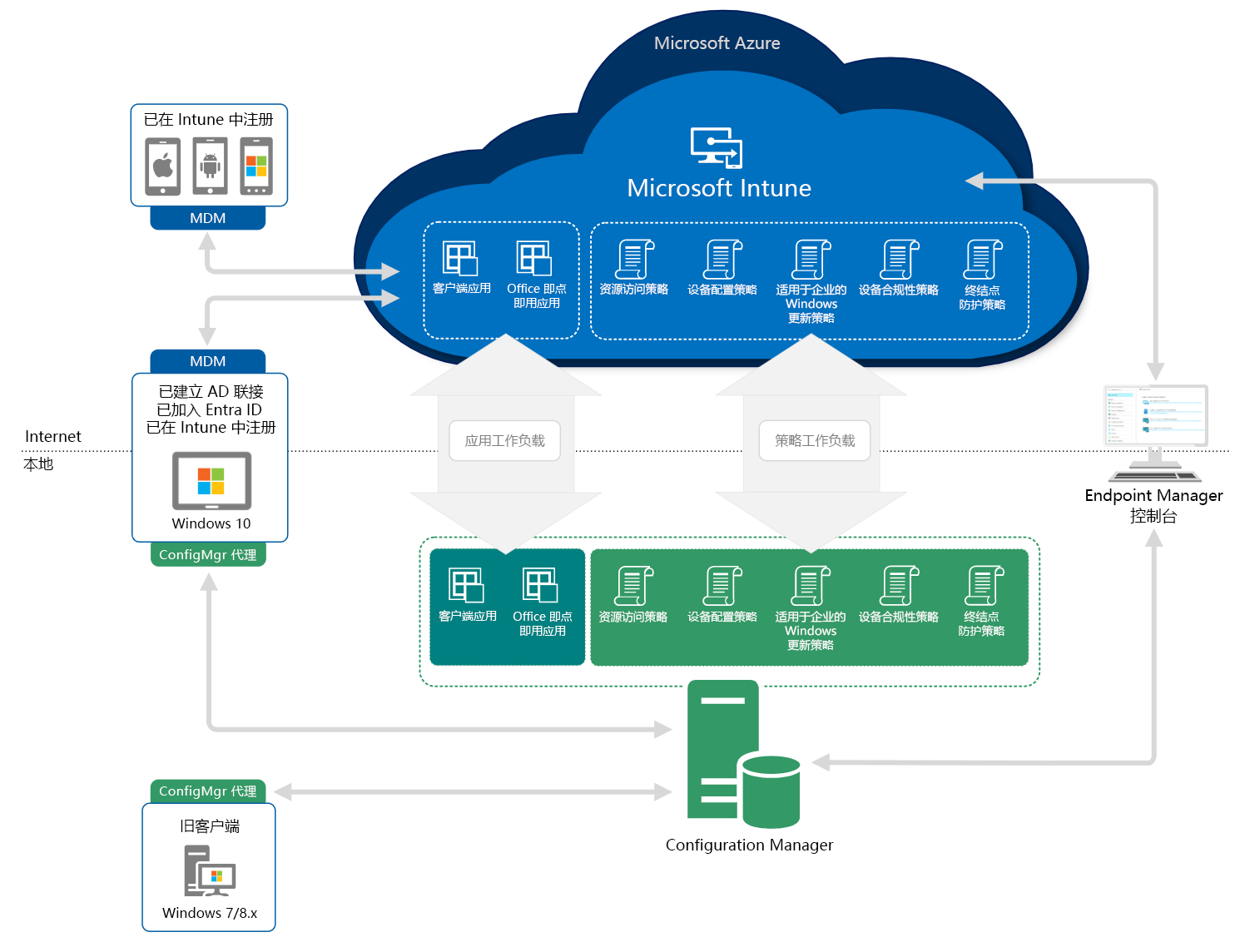了解云附加
利用云附加,可以在 Intune 中同时使用 Microsoft Intune 和 Microsoft Endpoint Configuration Manager。
云附加到本地设备有两个步骤。
- 附加的第一步称为“租户附加”,即向 Configuration Manager 部署注册 Intune 租户。
- 第二步称为“共同管理”,即使用 Configuration Manager 和 Intune 同时管理 Windows 10/11 设备。
通过这些步骤,可以逐步实现完全云附加。 通过租户附加可获得直接价值,通过共同管理可获得附加价值。
租户附加
租户附加允许 Intune 云服务从 Intune 内部识别 Configuration Manager 设备和基础结构并对其执行操作。 连接 Configuration Manager 后,你即时就能获得云价值。 Configuration Manager 使用 Configuration Manager 连接器启用流往 Intune 的数据流。 该连接器需要连接到 Intune 租户,而且不需要启用共同管理。
共同管理
通过共同管理,可以使用 Configuration Manager 和 Intune 同时管理 Windows 10/11 设备。 共同管理通过使用 Intune、Microsoft Entra ID 和其他 Microsoft 365 云服务将你现有的本地 Configuration Manager 和 Active Directory 投入与云结合起来。 可以选择是将 Configuration Manager 还是 Intune 作为管理机构。 可以将一些任务保留在本地,同时在云中运行其他任务。
实现共同管理的途径主要有两种:
- 对于现有的 Windows 10/11 Configuration Manager 客户端,请设置混合 Microsoft Entra ID 并将设备注册到 Intune。
- 对于新的基于云的 Windows 10/11 设备,请加入 Microsoft Entra ID 并自动注册到 Intune。 安装 Configuration Manager 客户端,以实现共同管理状态。
将现有 Configuration Manager 客户端注册到共同管理后,你将立即获得以下功能:
- 具有设备合规性的条件访问
- 基于 Intune 的远程操作,如重启、远程控制或恢复出厂设置
- 集中式设备运行状况可见性
- 使用 Microsoft Entra ID 链接用户、设备和应用
- 通过 Windows Autopilot 进行新式预配
下图显示了如何使用 Configuration Manager 和 Microsoft Intune 管理 Windows 10/11 设备。
